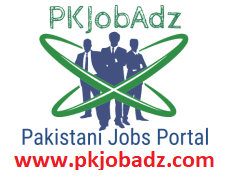Artificial Intelligence (AI) is no longer a futuristic concept—it’s a transformative force reshaping industries, redefining roles, and reimagining the global workforce. As we move deeper into 2025, the pace of AI innovation is accelerating, with profound implications for employment across sectors. This article explores the latest developments in AI, the jobs most at risk, the emerging roles of the future, and how professionals can adapt to thrive in this evolving landscape.
🚀 Latest Developments in AI (2025)
AI has evolved from narrow applications to powerful general-purpose technologies. Key developments include:
1. Agentic AI Systems
- Platforms like Salesforce’s Agentforce are enabling autonomous decision-making in enterprise operations, such as procurement and supply chain management.
- These systems can act independently, learn from feedback, and collaborate with humans—reshaping white-collar workflows.
2. Multimodal and Embodied AI
- AI models now process text, images, audio, and video simultaneously, enabling more human-like understanding.
- Huawei’s Pangu World Model supports digital twins, robotics, and 4D interaction spaces for industrial and simulation use cases.
3. Smaller, Specialized LLMs
- Companies are shifting from massive general-purpose models to compact, domain-specific LLMs that are faster, cheaper, and more secure.
4. AI in Industrial and Creative Sectors
- AI is optimizing manufacturing, logistics, and energy management.
- In creative fields, AI tools are generating content, music, and even marketing strategies.
📉 Jobs Most Likely to Be Replaced by AI
According to the World Economic Forum and recent industry reports, AI is expected to displace 85 million jobs globally by 2025—but also create 97 million new ones, resulting in a net gain.
🔻 High-Risk Job Categories
| Sector | Roles at Risk | Why They’re Vulnerable |
| 🧾 Administrative | Data entry clerks, schedulers | Rule-based, repetitive tasks easily automated |
| 🏦 Finance | Bank tellers, loan officers | AI handles risk analysis and document processing |
| 🛍️ Retail & Customer Service | Cashiers, call center agents | Chatbots and self-checkout systems |
| 🚚 Transportation | Delivery drivers, dispatchers | Autonomous vehicles and route optimization |
| 🧑⚖️ Legal & Compliance | Paralegals, compliance officers | AI reviews contracts and legal documents |
| 🧪 Healthcare Admin | Medical coders, billing specialists | AI automates recordkeeping and diagnostics |
⚠️ CEOs from Ford, JPMorgan, and Amazon warn that up to 50% of white-collar jobs could be replaced by AI in the coming years.
🌱 Emerging AI-Driven Careers (2025–2028)
While some roles are fading, new opportunities are rapidly emerging. Here are the top AI-powered careers expected to grow:
🔮 Top Emerging Roles
| Role | Description |
| 🧠 AI Prompt Engineer | Designs effective prompts for LLMs to generate accurate outputs |
| 🧪 AI Model Trainer | Fine-tunes models using curated datasets for specific industries |
| ⚖️ AI Ethics Consultant | Ensures fairness, transparency, and compliance in AI systems |
| 🧬 AI Behavior Analyst | Monitors and interprets AI decision-making for safety and alignment |
| 🧱 Digital Twin Architect | Builds virtual replicas of physical systems for simulation and optimization |
| 🧑🏫 AI Literacy Educator | Trains professionals and students in AI tools and responsible use |
| 🧑💼 AI Product Manager | Oversees development and deployment of AI-powered products |
According to RoboticsBiz, these roles are not only in demand but also offer high salaries and long-term career growth.
📘 How to Prepare for the AI-Driven Job Market
To stay competitive and future-proof your career, consider the following strategies:
1. 🧠 Upskill in AI & Data Literacy
- Learn Python, SQL, and tools like TensorFlow or PyTorch.
- Understand how LLMs, neural networks, and NLP work.
2. 🎓 Pursue AI-Centric Education
- Enroll in certifications or degrees in AI, machine learning, or data science.
- Explore interdisciplinary programs combining AI with healthcare, law, or business.
3. 🛠️ Embrace Human-AI Collaboration
- Focus on skills that complement AI: critical thinking, creativity, emotional intelligence.
- Use AI tools to enhance productivity rather than compete with them.
4. 🌐 Stay Informed and Agile
- Follow AI policy updates, ethical debates, and industry-specific applications.
- Be ready to pivot into adjacent roles as industries evolve.
🧭 Final Thoughts: Adaptation Is the New Job Security
AI is not just a disruptor—it’s a catalyst for reinvention. While some roles will vanish, many more will be redefined or created. The key to thriving in this new era is adaptability. Whether you’re a student, job seeker, or professional, now is the time to invest in AI fluency, lifelong learning, and cross-disciplinary thinking.
As Nvidia CEO Jensen Huang aptly put it:
“You’re not going to lose your job to AI—but to someone who knows how to use AI.”

